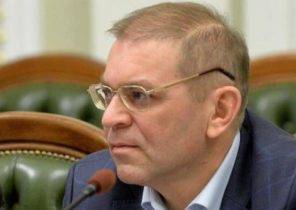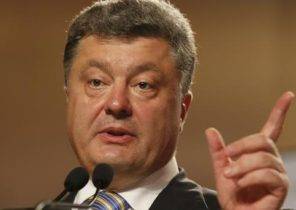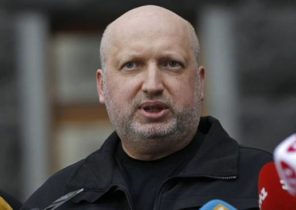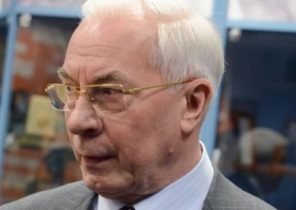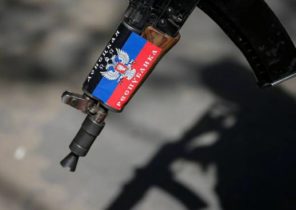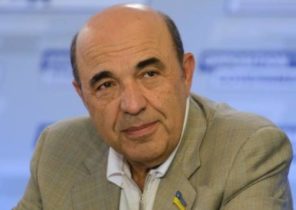
Anton Siluanov not one of those Russian politicians who increase their own importance by exaggerated pathos. Minister of Finance giant Empire features rather composure, prudence, and the sense of the rational and possible.
These people in the ruling Kremlin elite, Vladimir Putin is not that too much. The more attention was attracted to it Siluanov at the Gaidar forum in Moscow, in which he announced the completion of a unilateral dependence of Russia from export of oil and gas.
“The share of oil sector in Russia’s GDP in the period from 2014 to 2016 has decreased from 9.6% to 5.8%,” — said Siluanov. “The main shock, we have accomplished”. Russia recovered from “Dutch disease”.
With expensive Western import is finished
However, the Russian Finance Minister drew a parallel with events in the Netherlands in the early 60s. Then the Dutch discovered large gas field, which resulted in profound structural changes in the economy. Due to the export of gas skyrocketed rate of the Dutch currency, and significantly deteriorated the competitiveness of most sectors of the economy.
“If you look at history, all the crises we have connected with the fact that the economy was not diversified, the budget was very dependent on prices for export commodities,” — said Siluanov. Now it’s over.
Experts argue about how much Russia has suffered from “Dutch disease”. While there were high oil prices, showed serious signs of this disease. Because high surplus in the trade balance in this period increased the value of the local currency. As a result, many Russian citizens suddenly able to afford expensive Western goods.
The size of the real wages decreased for the first time in 15 years
However, domestic consumer goods, which in Russia is not too high, due to the strengthening of the ruble became even less competitive. Besides, the boom of the oil and gas industry contributed to the growth of wages, even in manufacturing sectors of the economy that became an additional burden for manufacturers across the commodity sector. This situation has pulled down the entire economy.
The fact that the “Dutch disease”, according to Siluanov, in retreat from Russia, not primarily the merit of the government. Recovery is rather a result of the decline in oil prices that began in mid-2014.
Because of the fall in oil prices during this time the ruble has dropped by more than two times. This development was also facilitated by the fact that the Russians due to the deterioration of the political situation began to massively withdraw funds abroad and within the country to change rubles for dollars.
In addition, the Western embargo imposed after the annexation of Crimea, has created conditions in order to completely stop the importation of certain agricultural products from the countries of the West. Only thanks to this circumstance, the Russian agriculture has received unprecedented impetus to the development. And the work force for the first time in 15 years fell because of declining real wages.
Russians constantly warn about the dangers the strengthening of the ruble
Thus, over unhealthy overweight of a share of the commodity sector in the economy. Observers, however, do not think that in Russia all the difficulties behind. In the end, last year the ruble somehow compensated for the loss of its value because oil prices — including through the active participation of Russia in the ongoing decline in oil production at the international level began to rise again.
Already, the President does not get tired to warn about the dangers of strengthening of the ruble. The Finance Minister is in a hopeless situation. After all, he very much needed the income from high oil prices. His solution to the problem: don’t immediately spend the increasing revenues from oil exports, and to replenish the expense reserve Fund, from which the last time it was pumped a lot of money.
The Central Bank also took into account the possibility of implementing this approach in order to increase foreign exchange reserves to $ 500 billion. In early January the volume of reserves amounted to 378 billion dollars. For comparison, before the 2008 financial crisis, their volume amounted to $ 600 billion.
Recession does not follow the rise of the economy
So, Russia can maintain its emergency reserves to cover the budget deficit for a longer period than previously thought. However, no one knows what will in the near future with oil prices.
In addition, gaining momentum, the overall assessment of the situation, which is that though came to an end which lasted two years of recession, but in the coming years it is expected stagnation rather than recovery. According to first estimates, GDP will grow to a maximum of one percent.
Former Finance Minister and Putin adviser Alexei Kudrin has said about the historically low rates of economic growth. Technological backwardness of the country threatens its sovereignty and poses a threat to security. The old model of the economy, according to Kudrin, no longer works.
According to forecasts of the Ministry of economy, will take another three years to at least compensate for the reduction in GDP over the last two years. Thus, by 2019 or 2020 will reach the level of 2014. Backlog from the Western world at first, will only increase.
In place of the “Dutch disease” comes “Russian”
According to estimates of the business newspaper “Vedomosti”, Russia’s economic growth in 2010 (except in 2012) chronically lagged behind global economic growth. And for the last ten years, starting in 2007, according to the International monetary Fund, the Russian economy grew by only 16 percent, while the world economy is 38%. Thus were dashed the successes of the period up to 2008, during which the Russian economy has overtaken the world, — writes the newspaper “Vedomosti”.
How to get out of this situation to the responsible officials have long known: we need to attract investment, increase productivity, raise the retirement age, invest more in education and health care instead of spending it on military and social spending. And again at the Gaidar forum demanded the reform of public administration and the judiciary.
Kudrin — a realist, as his successor, Anton Siluanov. And, being a realist, he understands that the lack of confidence in the public authorities impedes economic development. “The most important resource is the confidence,” he said. “People have high confidence in the President.
But if we look at the level of confidence in institutions such as government, Parliament, the police or a separate Ministry, it is significantly lower”. Sometimes, according to various surveys, it reaches only 15%. “At such a low level of trust in the authorities is difficult to carry out reforms”.
But, at least until the presidential elections in spring 2018, and so no one was going to do that. Putin himself little opportunity for serious reform, because otherwise, according to the billionaire of the automotive sector and until recently the Deputy of the state Duma Sergey Petrov, will collapse a house of cards. “Putin became a hostage of his own system.”
Can a country have recovered from the “Dutch disease” — the “Russian disease”, and she still can’t handle it. This disease to move easier. But he may be seriously delayed.
